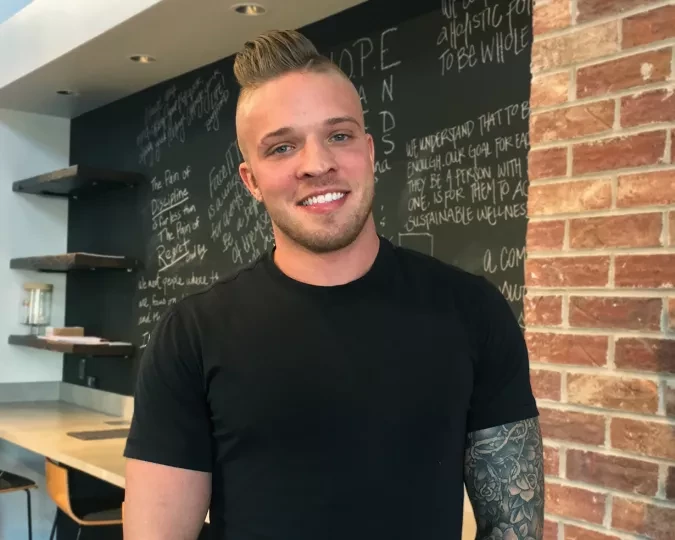A turning point for addiction wellness

Updated April 25, 2019
Kyle Jordan’s battles with addiction and depression have always gone hand-in-hand. Until recently, his feelings of guilt and depression were constantly with him.
“It was the first thing I thought about when I woke up and was the last thing I thought of before bed,” he said. “But oddly enough, it was also a blessing once I understood it.”
Jordan was diagnosed with depression when he was 16 and he went to his first addiction treatment center the next year. Since then, he’s participated in a range of therapies, including inpatient and outpatient treatment, sober living, mental health counseling and 12-step meetings.
“For me, my addiction wasn’t really to the drugs, but more to anything that could fill that empty space in me,” he said. "Even after I got sober, the majority of my depression was driven by guilt, especially guilt surrounding the things I did during my addiction.”
Though Jordan was sober for years, he still struggled to overcome that guilt. It wasn’t until recently that he started feeling more secure in his happiness. He’s also noticed a big difference in his job, something he attributes to a change in career and using his past to his advantage.
“When I let guilt and depression run my life, it was nothing but misery with only brief moments of happiness. It made any day-to-day task difficult, especially going to work,” he said. “But that same power that tore me down and took everything away is the same power that lifted me back up. Once I truly understood myself, my depression and my grief, I was able – with lots of help and practice – to turn that into something positive.”
‘A welcome difference’
Jordan started as a Face It TOGETHER coaching member in mid-2018.
He initially heard about the organization from his uncle, who had just started as a peer coach and now serves as Face It TOGETHER’s Denver Operations Manager. Jordan said he was struck by the immediate connection he made with his coach.
“When I came to Face It TOGETHER and met my coach, I thought, ‘This is where I’m supposed to be.’ I’ve looked for that everywhere, but it hasn’t been something I’ve found until here,” he said.
Jordan likes the flexible and teamwork-like approach of coaching.
“I’ve been through so many different kinds of therapy, counseling, and none of it has ever worked for me. I don’t like being talked at or told what you’re doing wrong,” he said. “With my coach, it was more of a dialogue between both of us and it was a welcome difference for sure.”
Once Jordan started working through the guilt and shame he carried from his addiction, it was a turning point for his wellness.
“I think because of this place and my coach, it’s probably the best I’ve felt in years. Years,” he said. “Even though I was sober, it still wasn’t the same quality of life or sobriety or happiness.”
‘The driving force’
Jordan recently started a new job as a firefighter, which has been his dream career for years.
“I’m doing what I love,” he said. “I used to be so concerned with what everyone else would think; I never really did what I wanted to do. Becoming comfortable with myself and who I am allowed me to find that happiness.”
Jordan now uses his past experiences to help himself and others.
“All of those hard times I went through, all of the things I did, as badly as I beat myself up – I wouldn’t trade those experiences for the world. They made me who I am today and are the driving force behind me,” he said. “There isn’t anything I can do about the past, but I will always have the ability to make the future better.”
